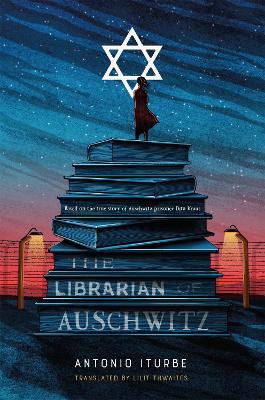Reviewed by Briana @ Pages Unbound on
The book weaves the stories of various other prisoners at Auschwitz into the narrative, ranging from Rudi Rosenberg, a camp registrar who eventually escaped and tried to warn the world of what the Germans were really doing in the concentration camps, to Fredy Hirsch, a youth sports leader who became in charge of the secret school in Block 31. The extra narratives make the book longer, and sometimes sadder since readers know from the beginning that Dita survives but may not be so sure about the other character—but the seeming tangents also help provide a more complete story what happened at Auschwitz.
The point-of-view is therefore sometimes odd, or it may be to readers used to the US young adult market, which is dominated by novels written in a first person limited perspective. The Librarian of Auschwitz is third person omniscient, switching not long among the points of view of various characters who may never interact with each other at all in the book but also to a narrative voice which occasionally interjects straight-up history lessons and commentary into the book.
At times, I found the story slow. I stopped reading it for a while then went to pick it back up, assuming I was at least halfway through; I was actually barely a quarter into the book. However, the story is one that should take time, drawing readers carefully through the various layers. Recommended for fans of historical fiction.
Reading updates
- Started reading
- Finished reading
- 14 January, 2018: Reviewed
